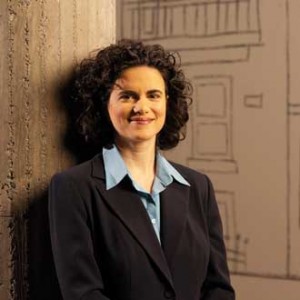
Finance Minister to be keynote at MISC conference
By Pascal Zamprelli
Ever find yourself asking of the government, “where do they come up with this stuff?” But when it comes to public policy, perhaps a better question to ask is, “how do they come up with this stuff?” Do crisis conditions, such as the current global financial crunch, help policy-makers focus, or do they simply render the process more chaotic? Does scientific and social evidence matter, or is it a question of which way the winds of public opinion are blowing? And who, exactly, gets a say?
Politicians, academics, government officials and practitioners will convene in an attempt to answer some of these questions at the McGill Institute for the Study of Canada’s (MISC’s) 2009 conference, Public Policy in Crisis? Understanding Policy-Making in Canada, which will take place on March 26 and 27 at the Faculty Club.
Antonia Maioni, MISC Director and chair of the conference, believes the conference will ask just the right questions, at just the right time. “Public policy in crisis? is a question that we ask for two reasons,” she said.
First, to find out “whether the machine of policy-making – how we make policy – is somehow stuck. In terms of the process itself, are we in a crisis situation? Are we in a situation where we need to have a better way of coming up with innovation and dealing with implementation?”
Second, the conference will explore policy-making in times of crisis. “The play on the word crisis is also the way in which governments are forced often to make policy in crisis situations,” Maioni said. “And the timeliness of it is that we’re there now. We’re in a situation in which there are crises – like the economic situation – that are forcing governments to react and to respond in responsible ways. So, how do they do that?”
It is no coincidence, then, that organizers have invited Finance Minster Jim Flaherty to deliver the keynote speech on Thursday evening. “He is in a difficult situation, as indeed governments around the world are,” Maioni explained, “and we’d like to get his perspective on how governments deal with these kinds of crises.”
They will no doubt still be talking about his comments the next morning, when speakers and panelists, including former Prime Minister Joe Clark, former Quebec Health Minister Philippe Couillard, Privy Council Clerk Kevin Lynch and pollster Nik Nanos, will join delegates in addressing issues central to current policy debates: how policy-making decisions are made in a time of crisis, the influence of public opinion and mass media on the policy-making process, the role of evidence-based research and the influence of non-governmental actors. Conference organizers expect a dynamic exchange of ideas and opinions that will yield new perspectives on the processes and players that shape public policy in Canada.
“What’s unique about this conference is that we’re bringing together both scholars and practitioners,” Maioni said. “We want to get them in the same room together, to see how they approach questions about public policy-making and the drivers of policy change, and to see whether or not they’re on the same page, and how one can learn from the other.”
It’s said there are two things you never want to see being made: sausage and political policy. The MISC conference, organizers believe, will be the exception that proves the rule. At least for policy.
